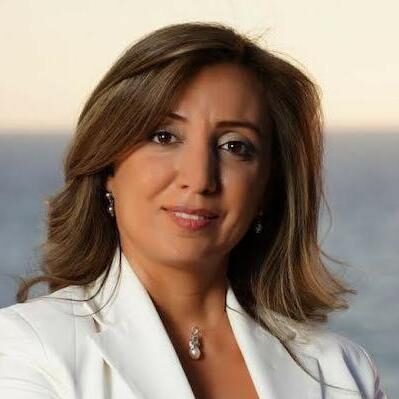
In 2023, the marketing landscape of the Middle East is undergoing a profound transformation, with influencer marketing taking centre stage. This remarkable trend boasts an astonishing estimated market value of $1.3 billion.
By Darine Saleh
Recognising that this surge is not an isolated phenomenon but a vital part of a broader global shift in marketing strategies is crucial. Globally, 75% of marketers are reallocating budgets away from traditional advertising channels such as TV, print, and outdoor media, directing their investments into influencer marketing. Doing so positioned it as the second most crucial advertising method behind social media.
"The State of Influencer Marketing in UAE 2023" provides an in-depth exploration of the burgeoning influencer marketing landscape in the UAE. This comprehensive report includes insights and contributions from leading brands representing various industries.
The sector is on a rapid upward trajectory, set to surpass an impressive valuation of $20 billion globally by 2024. In the context of this growth, the Middle East's market is projected to reach a remarkable $1.3 billion in 2023, highlighting marketers' unwavering commitment to influencer marketing, resulting in increased budgets and many upcoming campaigns.
The report underscores the growing budgets dedicated to influencer marketing, emphasising influencers' pivotal role in product launches and brand promotions. Marketers are increasingly leveraging influencers to drive sales and enhance brand awareness.
However, challenges persist, particularly in measuring return on investment (ROI). Nevertheless, the industry is adapting swiftly, harnessing technology and data-driven insights. Key performance indicators such as likes, comments, and shares on influencer posts underscore the significance of authentic audience engagement.
The report also sheds light on emerging trends reshaping the influencer marketing landscape. These trends encompass the emergence of CGI (Computer-Generated Imagery) influencers, the rise of socially conscious influencers advocating for various causes, a growing specialisation in content niches, and the increasing prevalence of live shopping experiences. Collaborations between brands and influencers have evolved to involve the co-creation of products, fostering deeper and mutually beneficial relationships.
Additionally, integrating artificial intelligence (AI) tools for real-time campaign optimisation is gaining prominence, emphasising the industry's commitment to efficiency and effectiveness.
A notable illustration of the impact of this trend is Saudi Arabia's successful effort to attract Cristiano Ronaldo, the world's leading influencer, to reside in the country.
At the same time, the UAE has become a thriving hub for numerous Arab singers and influencers. Another significant development is the transfer of Neymar to Saudi Arabia following a transfer fee agreement of approximately $100 million with Paris Saint-Germain in August 2023, showcasing the global reach of influencer marketing.
Influencer marketing is not confined to the Middle East; it's a global phenomenon. Forbes estimates there are approximately 50 million influencers worldwide across various social media platforms.
Platforms like Instagram, YouTube, and TikTok boast influencer counts ranging from 3.2 million to 37.8 million, highlighting the potency and efficacy of influencer marketing in modern advertising.
In the Middle East, influencers often use the English language in their marketing materials, as it is the most spoken and understood language by expatriates, workers, and residents of the Arab Gulf countries.
Sectors such as beauty, fashion, food, and interior design have a higher penetration rate of influencers, while specialised fields such as technology, healthcare, engineering, and law have relatively fewer representatives.
For example, Lebanese influencer Bassem Saber, based in the UAE, hosted on the Masters of Marketing Podcast the second most popular digital marketing influencer, Neil Patel.
The latter is a well-known name in the digital marketing industry, known for his experience and founding Neil Patel Digital, a company that helps businesses grow their online presence.
The Middle East, particularly the UAE and Saudi Arabia, has witnessed an unprecedented surge in social media usage, creating an ideal environment for thriving influencer marketing.
Their authenticity enables them to connect effectively with their audiences, transforming them into influential brand advocates capable of reshaping consumer behaviour.
The Middle East's influencer landscape stands out for its remarkable diversity. Influencers here transcend traditional sectors like fashion and beauty, expanding their influence into various domains, including travel, food, fitness, and even social activism.
As this phenomenon continues to mature, ethical considerations and challenges inevitably arise. A paramount concern revolves around the transparency of sponsored content.
Another pressing ethical challenge pertains to the authenticity of influencer content. The pressure to produce sponsored content may compromise the authenticity and originality of initially attracting followers.
Today's audiences seek genuine experiences and transparent recommendations from influencers. The rise of influencer fraud, including fake followers and engagement, poses a significant hurdle for brands seeking authentic influencers to collaborate with.






